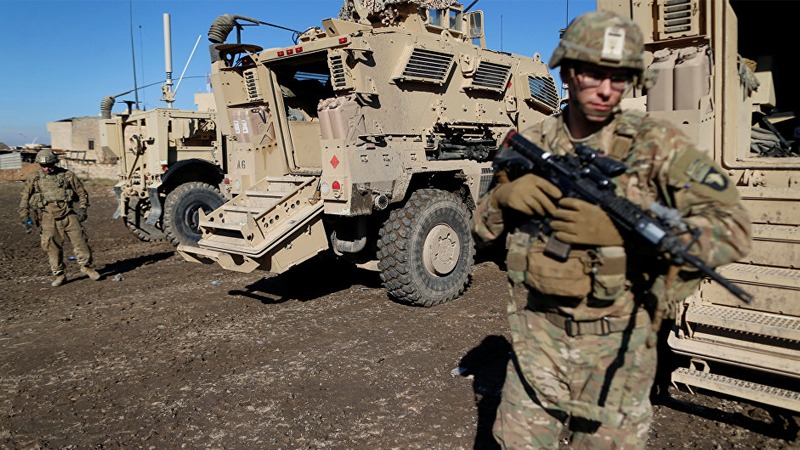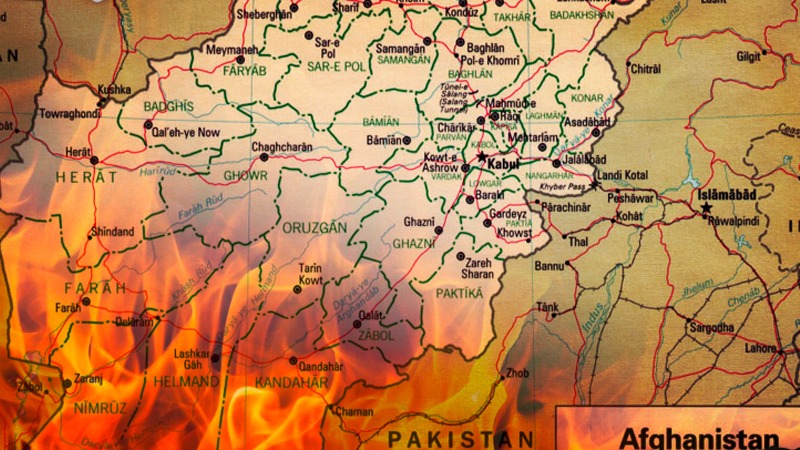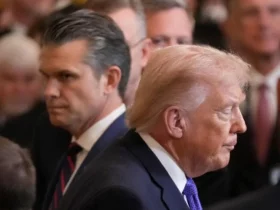Less than a week after Ali Shamkhani returned to Tehran, Iranian foreign ministry spokesman Bahram Ghasemi announced that representatives of the Taliban had visited Tehran and that the Afghan government was aware of the visit.
Before the announcement, news and rumors were already circulating claiming that Tehran and Moscow had initiated talks with the Taliban, but Tehran never approved or denied the information.
#Iran‘s SNSC secretary Shamkhani confirms the talks held between Iran & the #Taliban of #Afghanistan, saying that Afghan government has been informed about the communications & the talks with the group & that the process [of coordination with the government] will continue. pic.twitter.com/5ENhdWmj1E
— Abas Aslani (@AbasAslani) 26 de decembro de 2018
After the Americans and their allies initiated their own so-called “peace talks” with the Taliban, Tehran felt that the time was right to admit it had already done so in their efforts to solve the crisis in Afghanistan.
While the US is interfering in the regional issues of a country 12 thousand kilometers away, for Iran, Afghanistan is a neighbor on its eastern border. Likewise, for Russia, Afghanistan is close enough to overlap with questions of internal security.
Once upon a time, Afghanistan was a direct neighbor to the USSR. In 1979, US interference in the country became enough of a concern to provoke the USSR’s ultimately self-defeating war.
No one now denies that the US financed and trained Al-Qaeda and the Taliban to fight the USSR and the newly established Islamic Republic of Iran, but many don’t realize the US has never changed their strategy.
This must so terrible for intel western-linked #msm media:
A #US President spoke the #truth about the #war in #Afghanistan:
‘Soviets were fighting terrorists in Afghanistan’ – MORE: US-armed, US-trained another “moderate rebels” later known as #AlQaeda pic.twitter.com/WCoqt4SkQ7
— Desert Hawk ???? (@Syrian_Lion) 4 de xaneiro de 2019
Since the establishment of Al-Qaeda via the extremist Wahhabist Ideology sponsored by Saudi Arabia, the US’ primary ally in the region, the entire Middle East and now most of the world have been affected by this artificially created terrorist group.
While the basic Ideology of Al-Qaeda was based on “Fighting the Far Enemy” (or to put more simply, fighting the USSR), little by little, new ideological points merged into the “Far Enemy” concept after more Arab fighters joined Al-Qaeda in Afghanistan. After the fall of USSR, the “far enemies” became the organizations former US handlers, along with Israel and every other country considered a threat to their volatile brand of radical Islam.
After the fall of USSR, Al-Qaeda and the Taliban could no longer fulfill US needs in the region and the US felt that it need to have a direct presence. The September 11 attacks were exactly what they needed to justify setting up shop in Afghanistan. By establishing their self in the strategically located nation, the US was able to move within striking distance of the new emerging economic superpowers, China and India, as well as newly established Central Asian countries and, of course, Iran and Russia.
While the US was counting on a full control over a puppet government government in Afghanistan, Iran and Russia were able to counter by supporting political forces opposed to the US’ megalomaniacal plans, and, as a result, things did not go quite as smoothly as Washington had anticipated.

The American plan to dominate the Middle East is part of a broader strategy to invade and dominate other countries in the region, starting with Iraq and Syria and eventually turning toward Iran.
Thus, Iraq was invaded by the US just two years after the invasion of Afghanistan. However, in Iraq as in Afghanistan, Iranian allies were able to thwart the US’ strategy.
Having suffered serious defeat and losing control of the groups they had brought into the political arena, the Americans needed to make a new Al-Qaeda. Specifically, they needed a group which had the same basic Ideologies of Al-Qaeda, but instead followed a theory of “Fighting the Close Enemy”, the nations in the region which had developed resistance to US interests- they needed ISIS. ISIS militants were fostered to believe that they need to free Islamic countries with ties to actual regional players before biting the hand that feeds in the West, a “far enemy.”
With this new Ideology, the Americans believed they could create in Iraq and Syria what they had created in Afghanistan against USSR, only this time, the group would spread from Lebanon and Iraq to threaten the Islamic Republic of Iran. With ISIS present in Iran, the US could easily justify the invasion they had been planning for decades. This is why the Americans were supplying logistic support for ISIS fighters at the same time they were organizing a 65 country alliance to destroy them!
However, the plan failed again, and ISIS never made it beyond the borders of Iraq and Syria. The Iran-Russia alliance was able to reshuffle all the cards and defeat the terrorist organization while the Americans airlifted leading ISIS figures from Syria and Iraq to Afghanistan.
Recently, ISIS has again begun a new offensive in Afghanistan which indicates that the Americans have a new strategy for conquering their regional enemies.
In response, Iran and Russia a rushing to complete a peace process and solve the Afghan crises before America “solves” it with terrorist violence in its own interests.
The Syrian “peace process” led by the US and its allies in Geneva proves that they never actually believed in regional stability. The Astana peace process lead by Russia, Iran and Turkey, on the other hand, has shown that actual regional actors are interested in finding meaningful solutions through diplomacy. These forces are naturally interested in peace and stability in the region because what is happening is taking place in their backyard, while the Americans and their allies are able to calmly sit back and benefit from the chaos at their enemies’ doorsteps.
The reason Iran and Russia had not publicly announced any of the outcomes of their talks with the Taliban was that they wanted the peace process to first reach a stage where they could be sure of success… but it seems that the Americans are resolute in destroying any progress that Iranian and Russian diplomats have made, announcing their own alternative “peace process,” which, as we have seen time and time again, will drag on without resolution.
Taliban Confirms Visit To Iran On Afghan Peace#Afghanistan https://t.co/4RGzcbzYI9 pic.twitter.com/Gq4nDMSHIX
— TOLOnews (@TOLOnews) 1 de xaneiro de 2019
This is why Iran has now officially announced that it is leading a peace process in Afghanistan. Their joint initiative with Russia to solve the crisis is already much further along than the US’ efforts. If Washington had any real interest in stabilizing the situation in Afghanistan, they would sit down at the table set by Moscow and Tehran.

















Leave a Reply